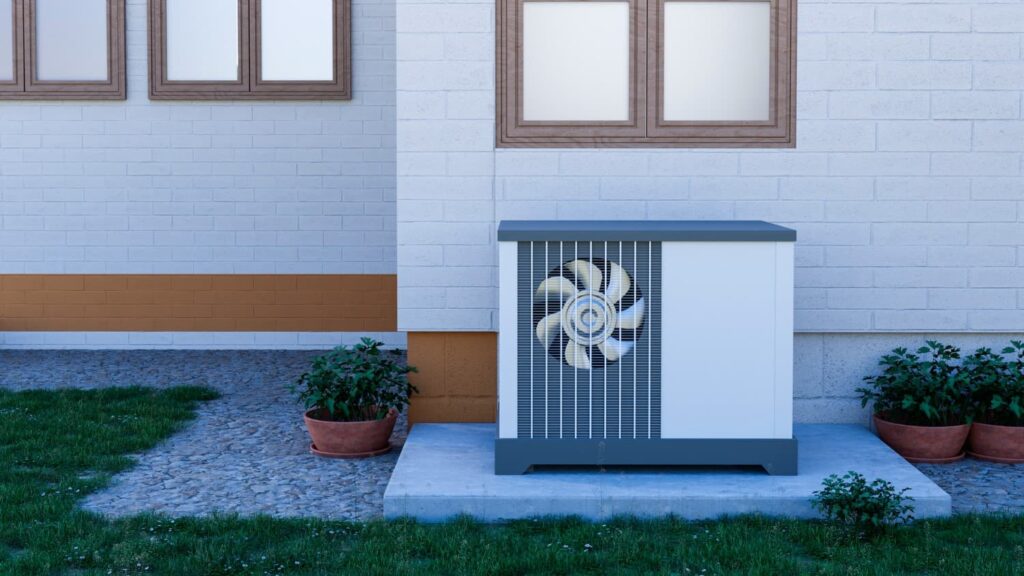Gas Leak: Why It Happens and What to Do
Gas leaks are a serious safety hazard that can lead to devastating consequences if not addressed promptly. From explosions and fires to health complications…

Heat pumps are popular for keeping our homes comfortable, but sometimes they can be noisy. Regardless of the sound, a noisy heat pump is something other than what you want to hear. While heat pumps are generally known for their quiet operation, they don’t work in complete silence. You might hear some normal sounds, like a soft humming from the fan blades, but other noises can signal a problem.
Understanding these heat pump noise can help you maintain a peaceful home environment.
A heat pump is a special type of air conditioning system that operates in two different ways. It functions like a traditional air conditioner during warm months by taking warm air from inside your home and pushing it outside to cool your living space.
However, in colder months, the heat pump extracts heat energy from the outside air, even when it’s chilly, and brings that warm air inside. This method is much more efficient than using electric heating systems, making heat pumps an environmentally friendly choice.
Learn more about Heat Pump Vs. Furnace.
Both indoor and outdoor components of a heat pump can make some noise. In residential neighborhoods, this noise can sometimes bother neighbors. The noise typically comes from the compressor in the outdoor unit. This component can produce sounds ranging from a gentle hum to more noticeable noises, which can be annoying.
If you wonder, “Are heat pumps noisy?” the answer is yes, they can be, but it depends on various factors, including the model and installation.
It’s normal for your heat pump to make some noise during operation. Like any mechanical system, heat pumps have pumps and fans that generate sound.
A modern heat pump usually operates at a noise level of 70 to 75 decibels, similar to an average office’s noise level. The quietest models can operate at around 40 to 50 decibels, comparable to the sound of rustling leaves. Generally, these sounds should only be overly concerning if they become louder or more frequent.
Understanding normal versus abnormal noises is vital for heat pump maintenance. Some common sounds include:
While some noises are normal, others can indicate a problem. If you hear loud or unusual sounds, it might be time to call in an HVAC technician. Here are some concerning noises to listen for:
Reducing heat pump noise can be simple and cost-effective. Here are some effective strategies:
The first step in addressing noise issues is identifying the source. Pay attention to when the noises occur and where they are coming from. This will help you determine if it’s a normal sound or if there’s a problem that needs fixing.
To minimize noise from the compressor, consider these tips:
Fan noise can also be reduced by:
Noises from refrigerant lines can be minimized by:
For outdoor units, consider these options:
Indoors, you can take steps such as:
A new heat pump will naturally be quieter than an older one, but regular maintenance is key. A professional HVAC service conducting routine checks can keep your system running smoothly and quietly. If the outdoor unit is close to a bedroom window, it’s especially important to maintain it well.
For those looking for more advanced solutions:
If you notice any unusual noises from your heat pump, especially if they are louder than normal or seem alarming, it’s important to take action. First, turn off your heat pump to prevent any potential damage. Then, contact TaskPro for expert heat pump repair and other heating services. We also provide regular maintenance to help keep your system running smoothly and to avoid unnecessary wear and tear.
For reliable heat pump services in Langley, Surrey, and Vancouver, give us a call at 604-245-5524 or reach out through our online contact form. Your comfort and peace of mind are our top priorities
Yes, it’s normal for a heat pump to produce some sounds during operation. Most noises are harmless and indicate that the system is functioning properly.
Modern heat pumps are designed to operate quietly. However, they will still produce some noise, typically within the range of 40 to 75 decibels.
Some brands and models of heat pumps are specifically designed for quieter operation. Look for units that feature variable-speed compressors or advanced noise-reduction technologies for the best results.
Share this Guide
Gas leaks are a serious safety hazard that can lead to devastating consequences if not addressed promptly. From explosions and fires to health complications…
Septic tanks are a vital component of wastewater management systems, particularly in areas where municipal sewer systems are unavailable. These underground structures treat and…
Choosing the right toilet for your home is more than a simple decision; it’s an investment in comfort, efficiency, and functionality. The type of…